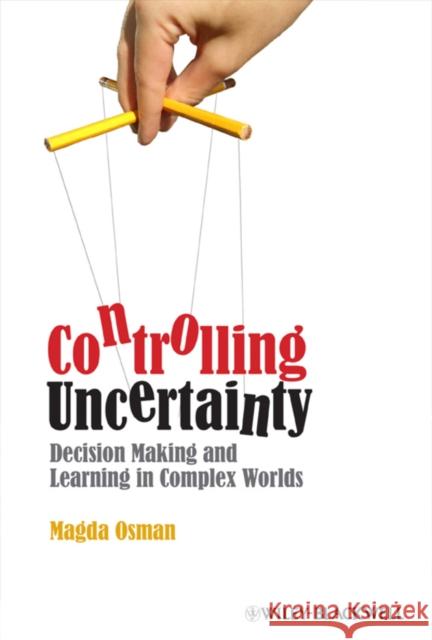Controlling Uncertainty: Decision Making and Learning in Complex Worlds » książka
topmenu
Controlling Uncertainty: Decision Making and Learning in Complex Worlds
ISBN-13: 9781405199469 / Angielski / Twarda / 2010 / 360 str.
Controlling Uncertainty: Decision Making and Learning in Complex Worlds reviews and discusses the most current research relating to the ways we can control the uncertain world around us.
- Features reviews and discussions of the most current research in a number of fields relevant to controlling uncertainty, such as psychology, neuroscience, computer science and engineering
- Presents a new framework that is designed to integrate a variety of disparate fields of research
- Represents the first book of its kind to provide a general overview of work related to understanding control











